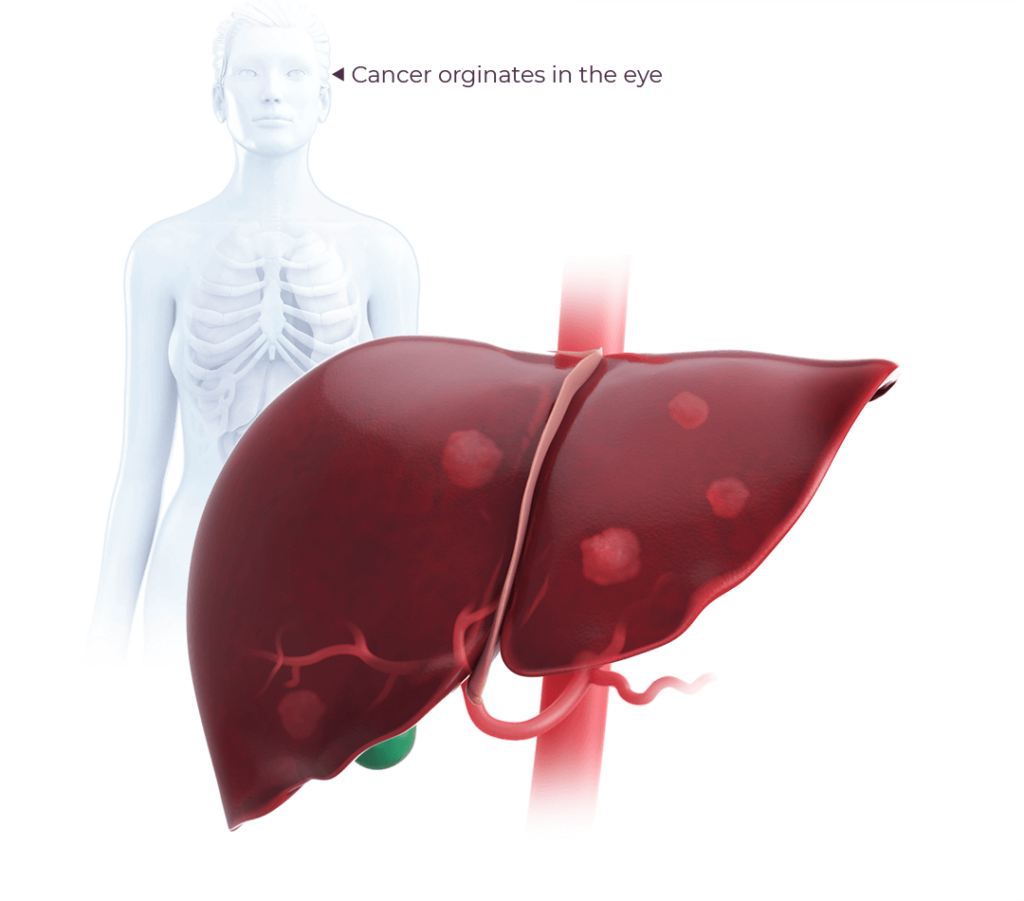
Uveal melanoma is the most common primary intraocular malignancy in adults and is considered an ultra-rare cancer,1 with approximately 2,500 patients diagnosed annually in the US.2 In approximately 50% of patients, ocular melanoma will spread to distant parts of the body within 15 years after treatment of the primary tumor1,3 with the liver the first site of metastasis in up to 90% of patients.3
TriSalus’ uveal melanoma with liver metastases clinical program will initially evaluate our investigational TLR9 agonist, nelitolimod (also known as SD-101), delivered deep into the vasculature of the liver tumors using our proprietary, FDA cleared device. Traditionally, TLR9 agonists like nelitolimod have not been administered intravenously but by direct injection into superficial tumors, making treatment of liver metastases very difficult.
TriSalus is studying the delivery of nelitolimod directly into the arteries supplying the liver in order to distribute the drug to uveal melanoma liver metastases, irrespective of size, number and location of tumors. Infusion by the TriSalus device using the Pressure-Enabled Drug Delivery™(PEDD™) method improves targeted delivery of therapy into high-pressure tumors using a standard intraarterial procedure.
Because immune cells are suppressed throughout the liver and micro-metastases or undetectable additional tumors may be present, tissue that appears normal is also treated with nelitolimod. Importantly, the nelitolimod treatment is being given in combination with a systemic (or intravenous) immunotherapy to enable treatment of tumors within the liver as well as tumors that may be present in other parts of the body.
Nelitolimod is in clinical development and has not been approved in the US or globally.
Intrahepatic Delivery of Nelitolimod by Pressure-Enabled Regional Immuno-Oncology (PERIO-01), with Checkpoint Blockade in Adults with Metastatic Uveal Melanoma is an open-label, phase 1/1b study of the pressure-enabled hepatic artery infusion of nelitolimod, a TLR9 agonist, alone or in combination with intravenous checkpoint blockade in adults with metastatic uveal melanoma.
This trial is currently recruiting. Learn more on periotrial.com.
We are studying the combination of nelitolimod with PEDD to enable immunotherapies in the liver and pancreas. Our clinical research is focused on bringing this potentially transformative treatment platform to patients.
1. Carvajal RD, et al. Br J Ophthalmol. 2017;101(1):38-44.
2. Masoomian B, et al. J Curr Ophthalmol. 2018;30(2):102-109.
3. Spagnolo F, et al. Cancer Treatment Reviews. 2012;38(5):549-553.
We encourage you to read and evaluate terms of use, privacy, security and other similar policies of the destination site as they may differ from TriSalus’ standards.
TriSalus assumes no responsibility nor does it control, endorse or guarantee any aspect of your use of any third party sites. Additionally, the presence of this link does not imply the third party site’s endorsement of TriSalus or this website.
Thank you for visiting our site.